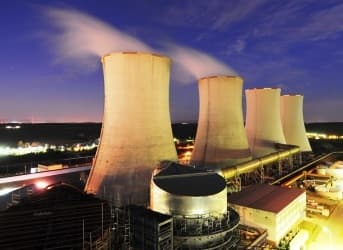Say what you will about the 11 March earthquake and subsequent tsunami that destroyed Tokyo Electric Power Company’s six reactor Fukushima Daiichi nuclear power plant complex, the subsequent management of news by both the Japanese government and TEPCO has been masterful.
In the last two years news bland news has been slowly dribbled out.
Japan’s Kyodo news agency reported under the headline “Record cesium level detected in fish caught near Fukushima nuclear plant,” “Tokyo Electric Power Co. said Friday it detected a record 740,000 becquerels per kilogram of radioactive cesium in a fish caught in waters near the crippled Fukushima Daiichi Nuclear Power Station, equivalent to 7,400 times the state-set limit deemed safe for human consumption.”
To put this in perspective, “Older adults who have high blood levels of omega-3 fatty acids — found almost exclusively in fatty seafood — may be able to lower their overall mortality risk by as much as 27 percent and their mortality risk from heart disease by about 35 percent, according to a new study from Harvard School of Public Health (HSPH) and the University of Washington. Researchers found that older adults who had the highest blood levels of the fatty acids lived, on average, 2.2 years longer than those with lower levels.”
“If you're fishing for ways to reduce the risk of heart disease, you might start with the seafood-rich diet typically served up in Japan. According to new research, a lifetime of eating tuna, sardines, salmon and other fish appears to protect Japanese men against clogged arteries, despite other cardiovascular risk factors.”
Related article: The Coming Nuclear Waste Disaster
Citing a study by the American College of Cardiology, “Japanese people eat about 3 ounces of fish daily, on average, while typical Americans eat fish perhaps twice a week.”
How much is consuming seafood with radioactive cesium “7,400 times the state-set limit deemed safe for human consumption” going to affect the overall health of the Japanese population, only research can determine.
But never mind.
The spinmeisters have done their job minimizing the implications of Fukushima, and are targeting energy bereft countries, particularly those in the Third World.
Enter Ghana.
Ghana’s Minister for Energy and Petroleum Emmanuel Kofi Buah said that Ghana is “committed” to considering nuclear energy as a viable option in the country’s future power generation, noting in a statement issued by the Ministry that the country’s increasing demand for power necessitated accelerated measures for the nation to consider nuclear power. Buah made his observations when the International Atomic Energy Agency Africa section chief, Dr. Dazhu Yang, currently in Ghana, visited him.
Nor do Ghana’s atomic energy dreams stop with supplying the nation. A year ago, Ghana’s Deputy Minister of Energy Alhaji Inusah Fuseini told participants at the “Cooperation and Networking for Nuclear Power Program in Africa” conference in Accra, organized by the International Atomic Energy Agency and Ghana’s Atomic Energy Commission that his nation is working “assiduously” to investigate the feasibility of adding nuclear energy to the country’s energy matrix, as it intends to become a major net exporter of energy to other West Africa States. Fuseini observed, “It is therefore expected that in foreseeable future this (nuclear) energy option will be introduced into our energy mix to make effective contribution to our developmental efforts towards the achievement of the sustainable energy for all by 2030.”
Related article: Using Microbes to Increase Oil Recovery from Old Wells
Given Africa’s image as a rising petro state, why is Accra considering this course?
According to the U.S. government’s Energy Information Administration, last year Ghana’s crude oil production was a paltry 79,630 barrels per day.
But, oil exports are projected to surge. In 2011 Ghana was Africa's fastest-growing economy, with an estimated growth of 14.4 percent as it joined the ranks of the continent's oil producing countries and pumped the first crude from its offshore Jubilee field.
Which makes the country’s apparent enthusiastic embrace of nuclear power all the more baffling – the only possible answer it seems, is that nuclear power inducts nation into a select group. But before Ghana signs off on energy from the atom, it should consider Japan, and the parent “buyers’ remorse” of an increasing number of Japanese citizens. After all, prestige doesn’t irradiate the food chain, something to consider as “fish contributes to at least 50 percent of total animal protein intake” in Ghana.”
By. John C.K. Daily of Oilprice.com



















http://www.world-nuclear-news.org/RS-Fukushima_internal_exposures_low_study_finds-1104134.html
As for Africa, either Nigeria or South Africa will be the first to build an NPP. No strong earthquakes or tsunamis in those countries.
This should be plainly obvious from the available results of whole body scans. Most recently a study published in the Proceedings of the Japan Academy reported results from Hirata Central Hospital in Fukushima prefecture between October 2011 and November 2012.
Of more than ten thousand people scanned, 88% had no detectable level of Cs-137 and just four people had a level that would cause a radiation dose of 1 mSv or more. This is an absolutely splendid outcome. The levels are very very low and none of those people have any need for concern about adverse effects on their future health due to internal exposure to Cs-137.
This is the reality on the ground. The author should look to his own attempts at spin before accusing others.
The opportunistic anti-nuclear hysteria surrounding the deadly earthquakes and tsunamis in Japan prefers to overlook the inconvenient documented truths which you reference.
A sad commentary on the collapse and corruption of modern journalism.